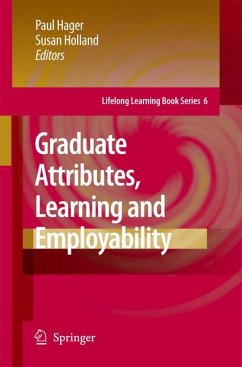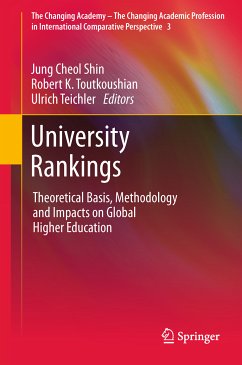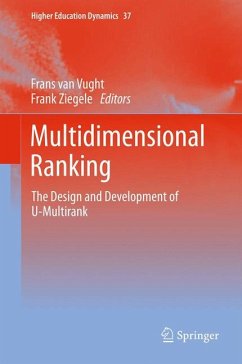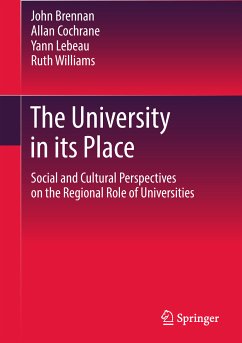
The Research Mission of Higher Education Institutions outside the University Sector (eBook, PDF)
Striving for Differentiation
Redaktion: Kyvik, Svein; Lepori, Benedetto
Versandkostenfrei!
Sofort per Download lieferbar
72,95 €
inkl. MwSt.
Weitere Ausgaben:

PAYBACK Punkte
36 °P sammeln!
Even if in most countries non-university higher education institutions did not have originally a research mandate, it is well known that in most cases these institutions have progressively developed research activities and, at least in some countries, the State now has recognized the research role of these institutions and provided support and funding. Moreover, in many countries the role of research in polytechnics, 'fachhochschulen', 'hogescholen', university colleges, etc is on the political agenda. Despite the importance of the issue, there are very few in-depth studies of research in the ...
Even if in most countries non-university higher education institutions did not have originally a research mandate, it is well known that in most cases these institutions have progressively developed research activities and, at least in some countries, the State now has recognized the research role of these institutions and provided support and funding. Moreover, in many countries the role of research in polytechnics, 'fachhochschulen', 'hogescholen', university colleges, etc is on the political agenda. Despite the importance of the issue, there are very few in-depth studies of research in the non-university sector. These studies show that the development of research in these institutions leads to quite complex interactions with universities, both in the sense of convergence (academic drift) and/or of differentiation of a specific research mandate oriented towards the regional economy. Therefore, this book aims to fill this gap by first analysing a number of transversal issues related to the research mission of these institutions. In its second part it gives an overview of the state of the art in eight European countries.
Dieser Download kann aus rechtlichen Gründen nur mit Rechnungsadresse in A, B, BG, CY, CZ, D, DK, EW, E, FIN, F, GR, HR, H, IRL, I, LT, L, LR, M, NL, PL, P, R, S, SLO, SK ausgeliefert werden.












